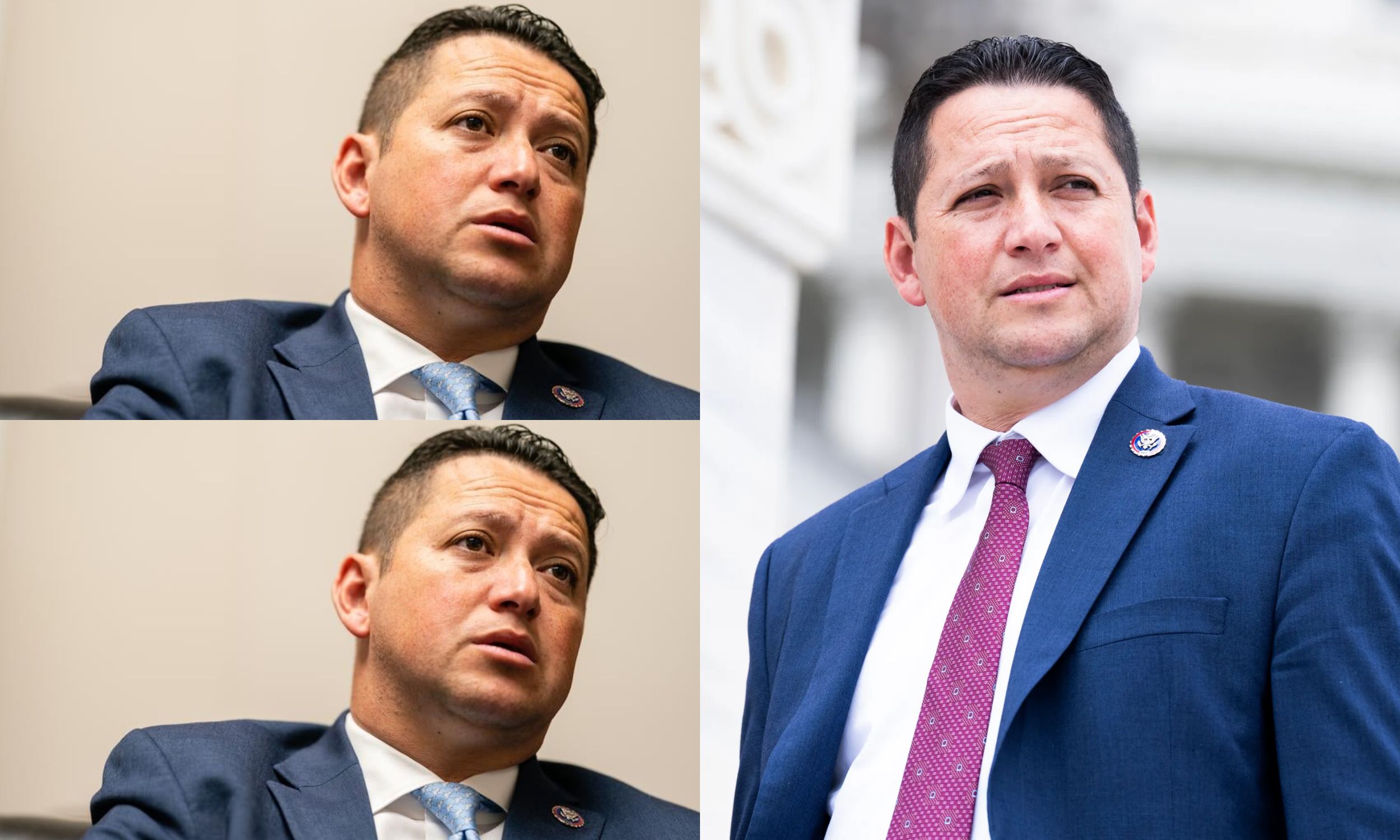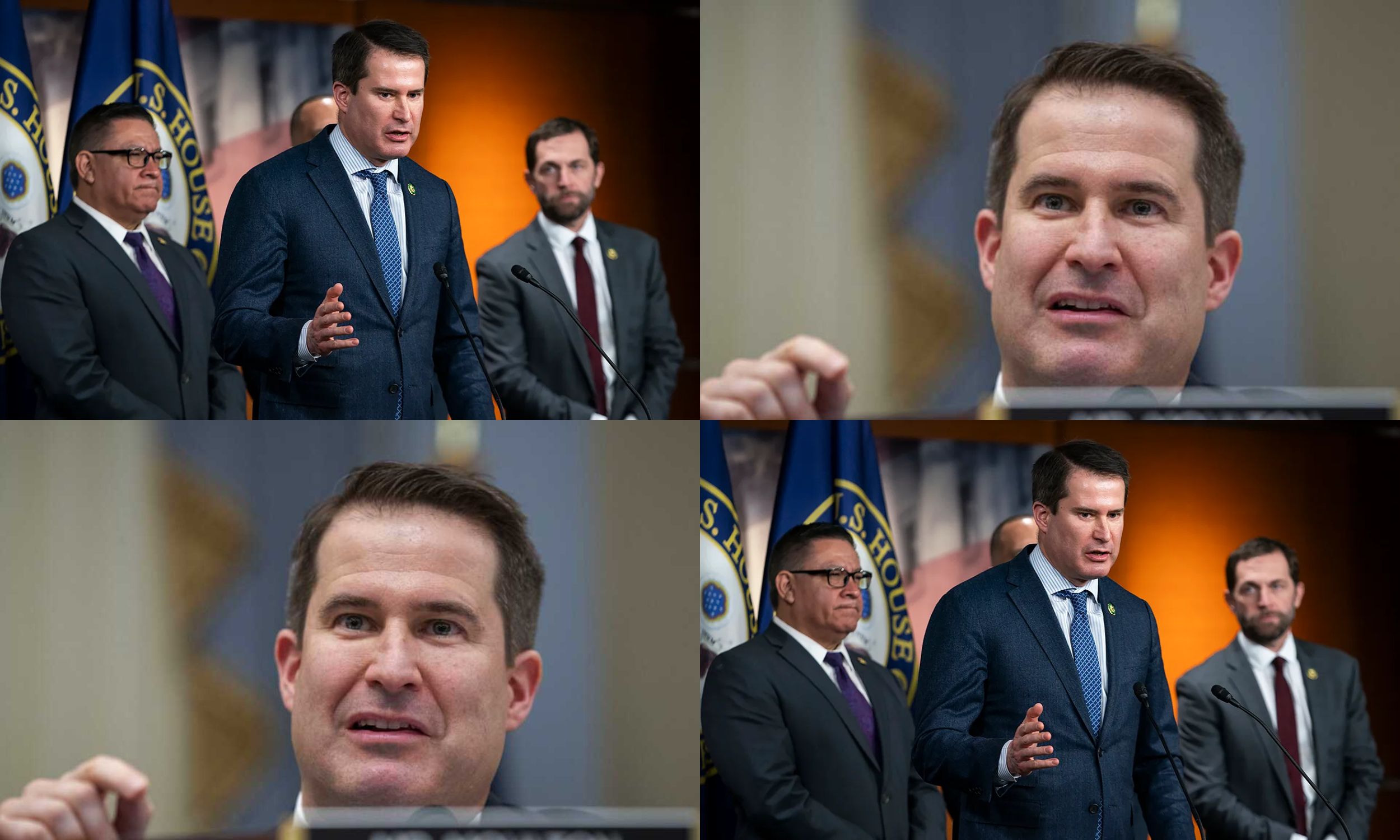Democrats are grappling with how the party’s strong backing of transgender rights may have influenced its failure to secure the presidency and control of Congress, with heated debates emerging in the wake of recent election losses.
Rep. Seth Moulton (D-Mass.), a five-term congressman who has typically voted with his party to protect transgender rights, ignited controversy after criticizing Democratic support for transgender athletes in women’s sports. He voiced his opinion during an interview with The New York Times about the party’s election setbacks.
Moulton remarked, “Democrats spend way too much time trying not to offend anyone rather than being brutally honest about the challenges many Americans face.”

Texas Rep. Gonzalez admits struggles with transgender rights messaging in tight race
He went on to express concerns about his daughters playing sports against transgender athletes, stating, “I have two little girls, I don’t want them getting run over on a playing field by a male or formerly male athlete, but as a Democrat I’m supposed to be afraid to say that.”
The Massachusetts Democratic establishment quickly denounced Moulton’s comments, particularly his use of the term “male” when referring to transgender girls, a language often used by those opposing transgender rights.
Steve Kerrigan, chair of the state Democratic Party, asserted that Moulton’s views did not represent the broader Democratic stance. State Rep. John Moran, a gay man, criticized Moulton as “weak,” while a Salem city councilor even called for his resignation.
Moulton’s position was not isolated; Rep. Tom Suozzi (D-N.Y.) also shared similar concerns, telling The New York Times that Democrats needed to stop pandering to the far left if they wanted to win elections. “I don’t want to discriminate against anybody, but I don’t think biological boys should be playing in girls’ sports,” Suozzi explained.
Some Democrats argue that while the party’s commitment to transgender rights should remain intact, a reevaluation of its messaging is necessary, especially in swing districts.
Rep. Vicente Gonzalez (D-Texas), who narrowly won reelection, admitted to struggling with the party’s transgender messaging, saying, “I got clobbered on all the transgender messaging in my district, and it was very painful.” Gonzalez’s opponent, former Rep. Mayra Flores (R-Texas), capitalized on his support for transgender rights during the campaign, mirroring the approach Republicans used nationwide to attack vulnerable Democrats.
In races like Gonzalez’s, Republicans weaponized Democratic votes in favor of transgender rights, incorporating them into attack ads that portrayed Democrats as extreme and disconnected from mainstream American values.
Reflecting on this, Gonzalez remarked, “All I’m saying is: Don’t ever whip me to take votes that I know are losers in my district.” The extent to which transgender issues influenced the election results is still debated.
A key ad by President-elect Trump, featuring The Breakfast Club host Charlamagne tha God responding to Vice President Harris’s comments on gender-affirming care for incarcerated trans people, was credited with shifting the race 2.7 percentage points in Trump’s favor, according to an analysis by the Future Forward super PAC, as reported by The New York Times.
Polling by AP VoteCast, surveying over 120,000 voters, showed that more than half believed government and societal support for transgender rights had gone too far, including 85 percent of Trump voters and about 25 percent of Harris supporters.
However, issues like the economy, democracy, and national security were far more serious in motivating voters, according to Gallup. Transgender issues ranked low, even falling behind concerns like relations with China and Russia or international trade.
Exit polling from the Human Rights Campaign found that only 4 percent of voters said opposition to transgender athletes or surgeries played a vital role in their decision at the polls.

Rep. Seth Moulton’s criticism of transgender policies raises questions about Democratic strategy
Rep.-elect Sarah McBride (D-Del.), the first openly trans person elected to Congress, countered the narrative that transgender issues were a primary focus of the election, pointing out that the Republican Party, not Democrats, was engaged in culture wars around trans issues.
McBride noted her victory in Delaware, a state that was heavily targeted by anti-trans ads in the final days of the campaign, showing that voters did not respond to those attacks.
Rep. Pramila Jayapal (D-Wash.), whose daughter is transgender, criticized what she saw as a tendency among some conservative Democrats to blame the most vulnerable members of the party rather than reassessing their own strategies.
Sen. Ron Wyden (D-Ore.) echoed Jayapal’s sentiment, comparing the current situation to the 2004 election, when pundits wrongly claimed that support for same-sex marriage hurt Democrats. He argued that standing up for what is right, even in the face of opposition, has historically been the winning strategy for the party.
Moulton’s comments were especially jarring for some, given his prior record of supporting transgender rights. He had co-sponsored the Transgender Bill of Rights in both 2022 and 2023, which would ensure that transgender student-athletes could compete on sports teams corresponding to their gender identity.
Moulton had also supported the Equality Act, which seeks to protect sexual orientation and gender identity as protected classes, and was a member of the Congressional Equality Caucus.
Despite his previous votes, Moulton opposed the Protection of Women and Girls in Sports Act, which sought to redefine sex under Title IX based on reproductive biology, voting against the bill twice.
Moulton’s spokesperson did not respond to questions about whether his views on transgender issues had shifted, but the representative did not support the Republican-sponsored transgender athlete ban, considering it overly broad and politically charged.
Massachusetts Gov. Maura Healey, the first openly lesbian governor of a U.S. state, expressed disappointment in Moulton’s remarks, calling them politically motivated. She emphasized the need for the party to engage in open discussions on various issues, including transgender rights.
In a recent MSNBC appearance, Moulton defended his stance but acknowledged that he may not have chosen his words carefully. He also claimed that some members of the LGBTQ community had thanked him for his remarks, citing their belief that the trans movement had gone too far.
Suozzi, who has similarly supported transgender rights, has faced far less backlash from his party over his remarks. His office did not immediately respond to requests for comment.























